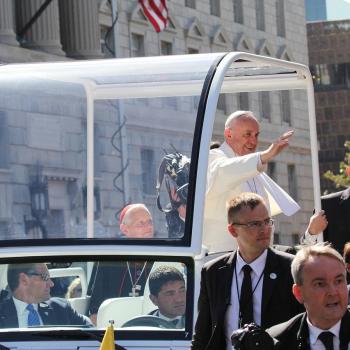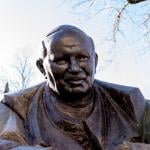DUANE IN NEW JERSEY ASKS:
Picking up on your comments on denominations, (a Gallup poll indicates) Americans still have a religious bent but that more folks don’t associate themselves with a particular denomination. Why?
THE GUY ANSWERS:
For perspective, note that in 1776 only a fifth of the population belonged to a church. Americans have always tended to be cussedly independent and indifferent toward the niceties of religious doctrine. American Christianity from the start has been fissiparous — The Guy has always wanted to use that word! — and moreso today. Though the U.S. has always had lots of “churn” in religion and everything else, this has greatly increased during this generation. Gallup is not alone in highlighting increasing numbers of “spiritual but not religious” Americans who say they believe in God and pray regularly but aren’t interested in joining any particular church or denomination. (This item addresses Christianity but much of it applies to Judaism or Islam.) The Guy’s amateur sociology sees numerous factors at work:
Once upon a time, most Americans were lifelong residents in the same regions as their parents, bound together by a common culture that included ethnicity and religious affiliation. Marriages frequently occurred within the same religious tradition. Americans of the current generation are increasingly mobile, in response to new vocational and educational opportunities and a fickle job market. That creates frequent changes of address with resulting shifts in religious affiliation if not neglect of any church involvement. Busy parents, frequently with both working outside the home, may convince themselves there’s not enough time left over for churches — or for that matter any other community organizations. Churches demand time, money, and involvement with an unpredictable variety of people. Marriage across religious lines, increases in divorce, non-marital cohabitation and unwed motherhood, and the proliferation of athletics and other Sunday diversions, likewise weaken churches’ hold. On top of that, the social disruptions since the 1960s made many younger Americans suspicious toward conventional institutions of all types, including established denominations. Church scandals have provided an easy excuse for cynicism and non-involvement. There’s decreasing respect for traditional faith (in media, schools, etc.) and anti-religious hostility from an aggressive faction.
Evangelical Protestant entrepreneurs have resisted the cultural tides through “non-denominational” congregations that have no formal links beyond the local group. Churches affiliated with denominations sometimes play down those links and remove identifiers from their names. “Seeker churches” add showmanship and subtract traditions that might turn off spiritual vagabonds (rituals and formality, hymns, hymnals, crosses, robes, pipe organs, offering plates, ushers, dress codes, pulpits).
Given all that, it’s difficult to project the shape of the U.S. landscape a generation from now. Yet hungers for transcendence, authentic spiritual resources, meaning in existence, loving fellowship, well-run opportunities to help others, and moral stability all appear to be built into many or most Americans. In the long run, faith inevitably takes institutional form if it is to survive and thrive beyond the present. That generally requires old-fashioned denominations, or at least quasi-denominations, or the fashioning of ever-new equivalents and replacements.












